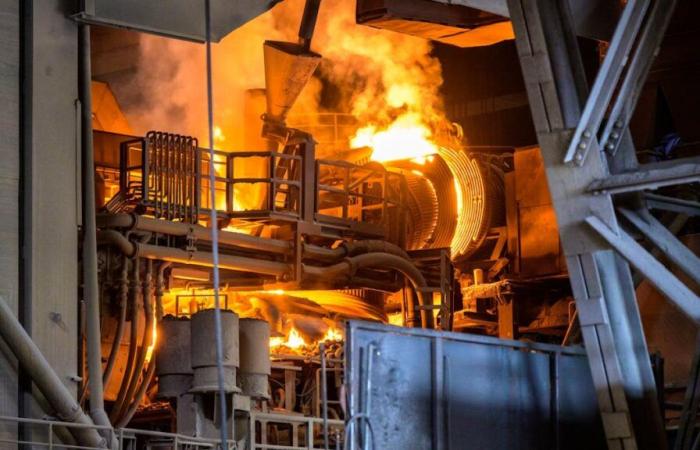European industries have been under increased pressure since 2023 due to increasing competition from third countries. Despite a slight recovery in industrial production in the euro zone in the last quarter of 2024, the level of production remains around 5% below the 2022 average. The rise in energy prices, the weakness of activity in construction and sluggish demand in the European automobile market would weigh particularly heavily on the industry.
“Luxembourg is not spared from this development,” writes the statistics institute Statec in its “Conjoncture Flash” on Tuesday.
Along with Germany and Austria, the country is one of those experiencing the sharpest decline in competitiveness. The industries of the Grand Duchy are experiencing developments similar to those of their neighbors, but are showing slight signs of stabilization, according to Statec.
Particularly affected are the manufacturing of computer equipment, electronic and optical equipment and electrical equipment, rubber and plastic products, the textile industry and the chemical industry. “In general, the climate in Luxembourg industry has tended to improve since mid-2023, while it continues to deteriorate in the euro zone,” the press release continues. The recovery is, however, hampered by strong monthly fluctuations, particularly in the metallurgy industry.
The evolution of the labor market is an important indicator of economic activity. In Luxembourg, the number of hours worked by temporary workers remains around 20% lower than its level before the 2019 crisis. The construction sector, industry and the financial sector have particularly reduced their use of temporary work.
According to Statec, inflation has evolved more moderately in Luxembourg than in the euro zone. Prices of restaurants and cafes have increased by 22% since 2019, compared to 25% on average in the euro zone. However, the prices of small meals increased most sharply (+25%), followed by restaurant drinks (+24%) and non-alcoholic coffee-based drinks (+22%).
-The country is, however, facing challenges in terms of energy prices: “The increase in the price of gas for small businesses is, with +130% between the second half of 2019 and the first half of 2024, the highest in the Eurozone. At the same time, the increase in electricity prices for companies consuming less than 20 megawatt hours is among the lowest.
The introduction of new electricity prices in 2025 is expected to result in an average increase of 30% in prices for households. “Households with electric cars or heat pumps will be particularly affected,” the report said.
Are you already following us on WhatsApp?
Subscribe to our channel, activate the little ???? and you will receive a news recap every day in early evening.






